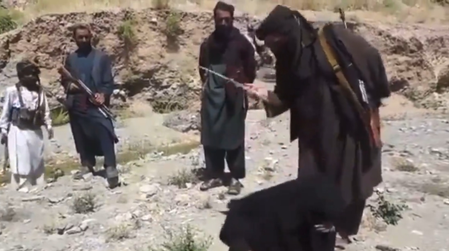Kabul: Despite mounting international condemnation, the Afghan Taliban carried out four public executions Friday in the western provinces of Badghis and Nimroz of Afghanistan, as confirmed by the Taliban-run Supreme Court.
“I deplore four public executions carried out today in Badghis (2), Farah and Nimroz provinces Afghanistan and reiterate that these executions as well as corporal punishments carried out by the Taliban in public are clear violations of international law and must stop immediately,” Richard Bennett, UN Special Rapporteur on the situation of human rights in Afghanistan, posted on X.
I deplore four public executions carried out today in Badghis (2), Farah and Nimroz provinces #Afghanistan & reiterate that these executions as well as corporal punishments carried out by the Taliban in public are clear violations of international law and must stop immediately.
— UN Special Rapporteur Richard Bennett (@SR_Afghanistan) April 11, 2025
Since returning to power in 2021, the Taliban has revived and expanded its brutal use of corporal and capital punishment under its interpretation of Islamic law.
Additionally, according to the latest data released by the Taliban’s Supreme Court, at least 456 people, including 60 women, were publicly flogged in 26 provinces in March 2024. More than 798 people, including 140 women, have also faced public lashings over the past three years.
The report highlighted that the Taliban have issued 176 rulings for executions, 37 sentences of stoning, and four cases in which individuals were killed by having a wall collapse on them — a punishment drawn from early Islamic history.
The United Nations and other international bodies have repeatedly urged the Taliban authorities to cease such punishments and emphasised due process, judicial transparency, and fundamental rights for all Afghans.
The UN, in its earlier report, stated that the public execution in Afghanistan is a “clear human rights violation”. Condemning the act, the UN said that since the Taliban takeover of Afghanistan in 2021, the de facto authorities have reintroduced public executions, floggings and other forms of corporal punishment, despite international appeals to uphold human rights standards.
These practices have raised significant concerns among human rights experts and the international community. The public execution reflects a broader pattern of human rights deterioration in Afghanistan, the UN added.
In February, Bennett told the UN Human Rights Council that the Taliban is solidifying its stranglehold on Afghan society and governing through repression and fear.
“Intensifying Taliban repression, expanding discrimination against women and girls, shrinking civic space, violations against ethnic and religious and an alarming escalation in corporal punishment and other violence are stark warnings that things in Afghanistan are only getting worse,” he stated.
IANS







































